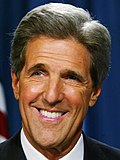
From January 14 to June 8, 2004, voters of the Democratic Party chose its nominee for president in the 2004 United States presidential election.
The following is a timeline of events during the 2004 U.S. presidential election:
Lyndon LaRouche's United States presidential campaigns were a controversial staple of American politics between 1976 and 2004. LaRouche ran for president on eight consecutive occasions, a record for any candidate, and tied Harold Stassen's record as a perennial candidate. LaRouche ran for the Democratic nomination for President of the United States seven times, beginning in 1980.

The 2004 United States presidential election in Illinois took place on November 2, 2004, and was part of the 2004 United States presidential election. Voters chose 21 representatives, or electors to the Electoral College, who voted for president and vice president.
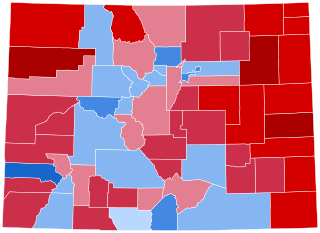
The 2004 United States presidential election in Colorado took place on November 2, 2004, and was part of the 2004 United States presidential election. Voters chose nine representatives, or electors to the Electoral College, who voted for president and vice president.
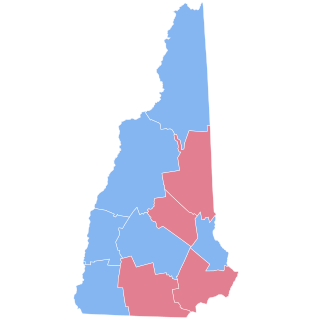
The 2004 United States presidential election in New Hampshire took place on November 2, 2004, and was part of the 2004 United States presidential election. Voters chose four representatives, or electors to the Electoral College, who voted for president and vice president.

The 2004 United States presidential election in Indiana took place on November 2, 2004, and was part of the 2004 United States presidential election. Voters chose 11 representatives, or electors to the Electoral College, who voted for president and vice president.

The 2004 United States presidential election in New Mexico took place on November 2, 2004, and was part of the 2004 United States presidential election. Voters chose five representatives, or electors to the Electoral College, who voted for president and vice president.

The 2004 United States presidential election in Oregon took place on November 2, 2004, and was part of the 2004 United States presidential election. Voters chose seven representatives, or electors, to the Electoral College, who voted for president and vice president.
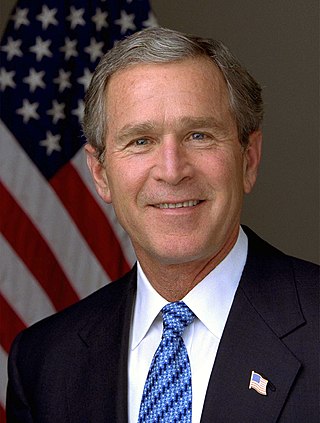
The 2004 United States presidential election in Kentucky took place on November 2, 2004, and was part of the 2004 United States presidential election. Voters chose eight representatives, or electors to the Electoral College, who voted for president and vice president.
The 2004 United States presidential election in Tennessee took place on November 2, 2004, and was part of the 2004 United States presidential election. Voters chose 11 representatives, or electors to the Electoral College, who voted for president and vice president.

The 2004 United States presidential election in South Carolina took place on November 2, 2004, as part of the 2004 United States presidential election which took place throughout all 50 states and D.C. Voters chose eight representatives, or electors to the Electoral College, who voted for president and vice president.

The 2008 New Hampshire Democratic presidential primary on January 8, 2008 was the first primary in the United States in 2008. Its purpose was to determine the number of delegates from New Hampshire that would represent a certain candidate at the National Convention. In a primary, members of a political party—in this case, the Democratic Party—will select the candidates to a subsequent election. Since 1920, New Hampshire has always hosted the first primaries in the entire nation. The Democratic Party's primary occurred on the same day as the Republican primary.

The 2008 Oklahoma Democratic presidential primary, part of the process of selecting that party's nominee for President of the United States, took place on February 5, one of the many nominating contests of 2008's "Super Tuesday". The primary election chose 38 pledged delegates to represent Oklahoma at the 2008 Democratic National Convention. The remainder of Oklahoma's 47 delegates consisted of unpledged superdelegates not bound by the results of the primary. The election was a closed primary, meaning that only registered Democrats could vote in this election. Hillary Clinton won the primary by a significant margin.

The 2004 Arizona Democratic presidential primary took place on February 3, 2004, as part of the 2004 United States Democratic presidential primaries. The delegate allocation is Proportional. the candidates are awarded delegates in proportion to the percentage of votes received and is open to registered Democrats only. A total of 55 delegates are awarded proportionally. A 15 percent threshold is required to receive delegates. Frontrunner John Kerry won the primary with former general Wesley Clark coming second.

The 2004 California Democratic presidential primary was held on March 2, 2004, the same day as the Republican primary. Senator John Kerry overwhelmingly won the primary over rivals Senator John Edwards, Congressman Dennis Kucinich, and Reverend Al Sharpton. The primary was open to both registered Democrats and unaffiliated voters. 440 delegates were at stake, with 370 tied to the March primary.

The 2008 United States presidential election in New Hampshire took place on November 4, 2008, as part of the 2008 United States presidential election throughout all 50 states and D.C. Voters chose four representatives, or electors to the Electoral College, who voted for president and vice president.
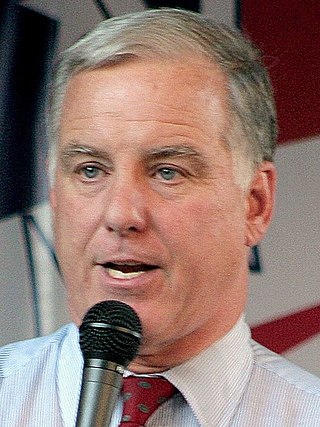
The 2004 Vermont Democratic presidential primary took place on March 2, 2004, as part of Super Tuesday along with other primaries and caucuses held throughout the country. Vermont's 15 pledged delegates were allocated based on the results of the primary.

The 2000 Ohio Democratic presidential primary took place on March 7, 2000, as one of 15 states and one territory holding primaries on the same day, known as Super Tuesday, in the Democratic Party primaries for the 2000 presidential election. The Ohio primary was a semi-open primary and awarded 169 delegates towards the 2000 Democratic National Convention, of which 146 were pledged delegates allocated based on the results of the primary.

